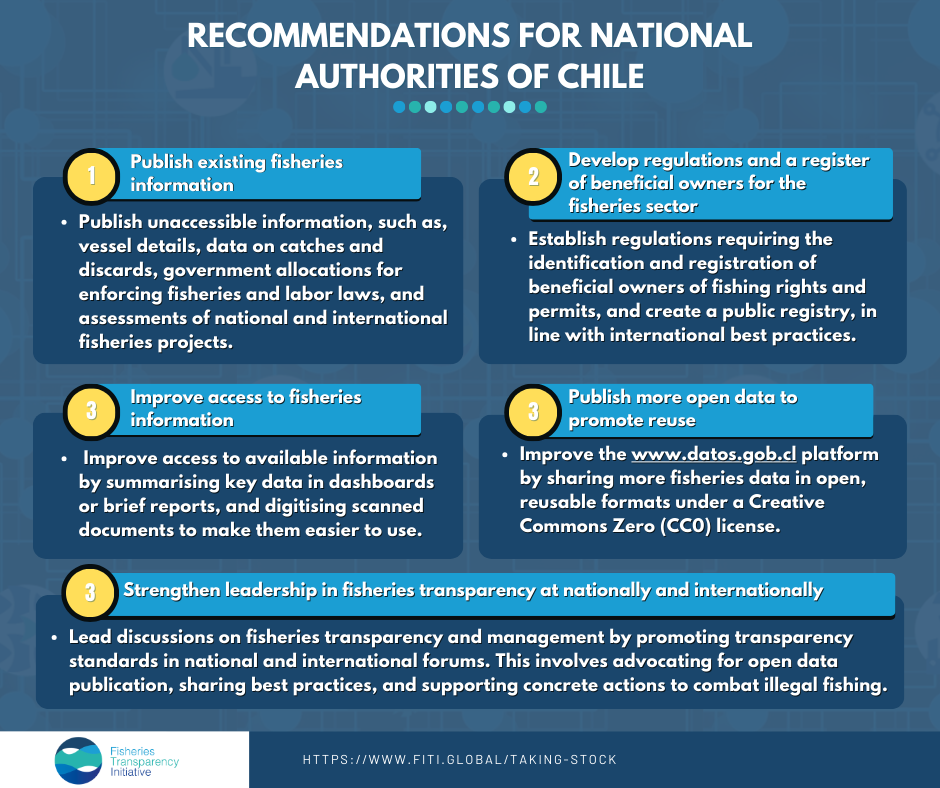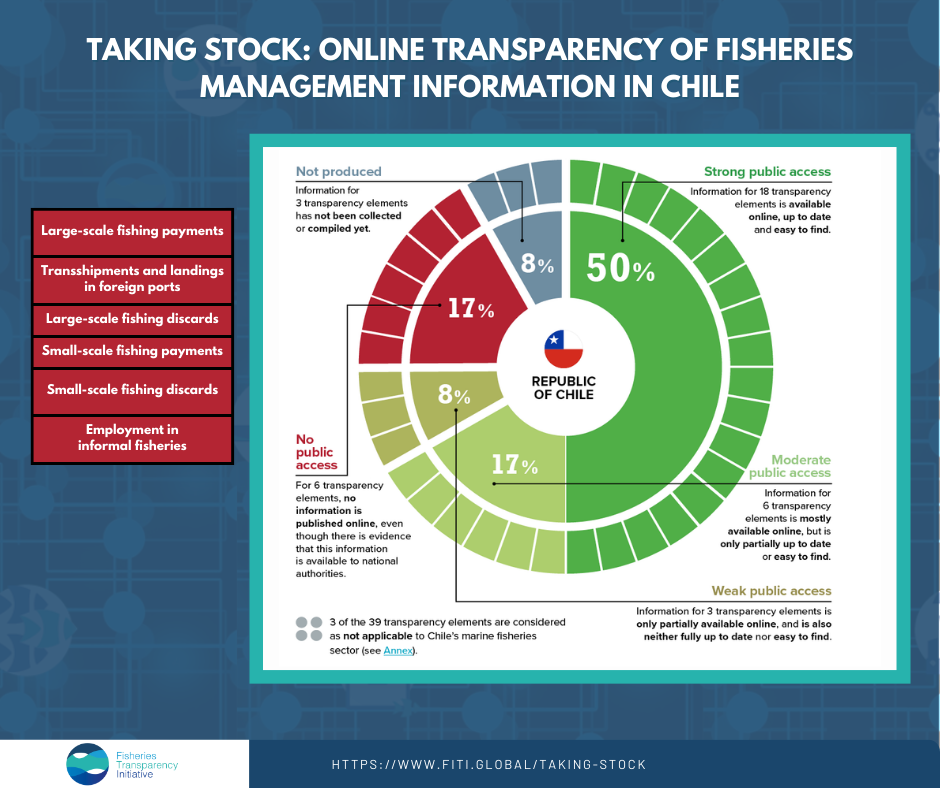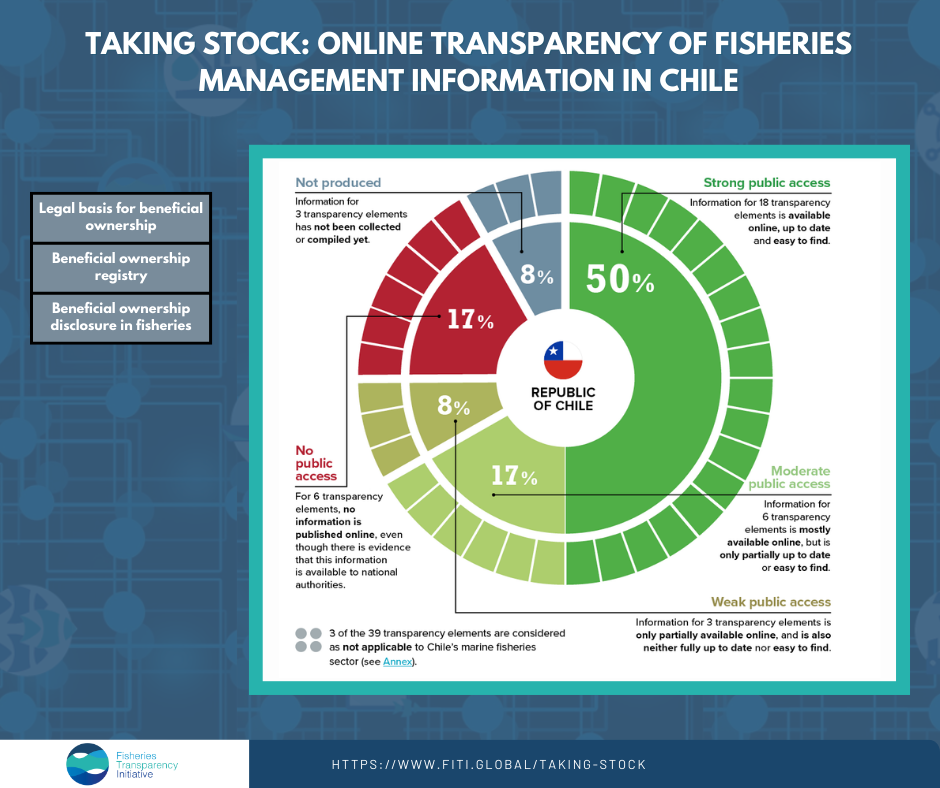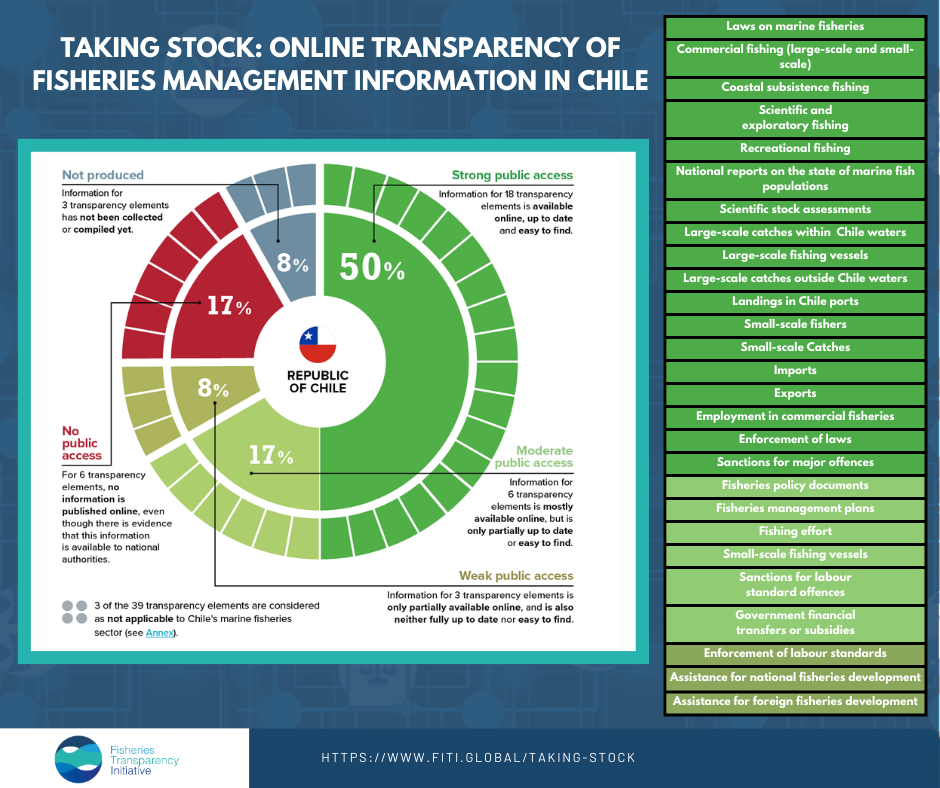Chile demonstrates high levels of fisheries management transparency in latest TAKING STOCK assessment
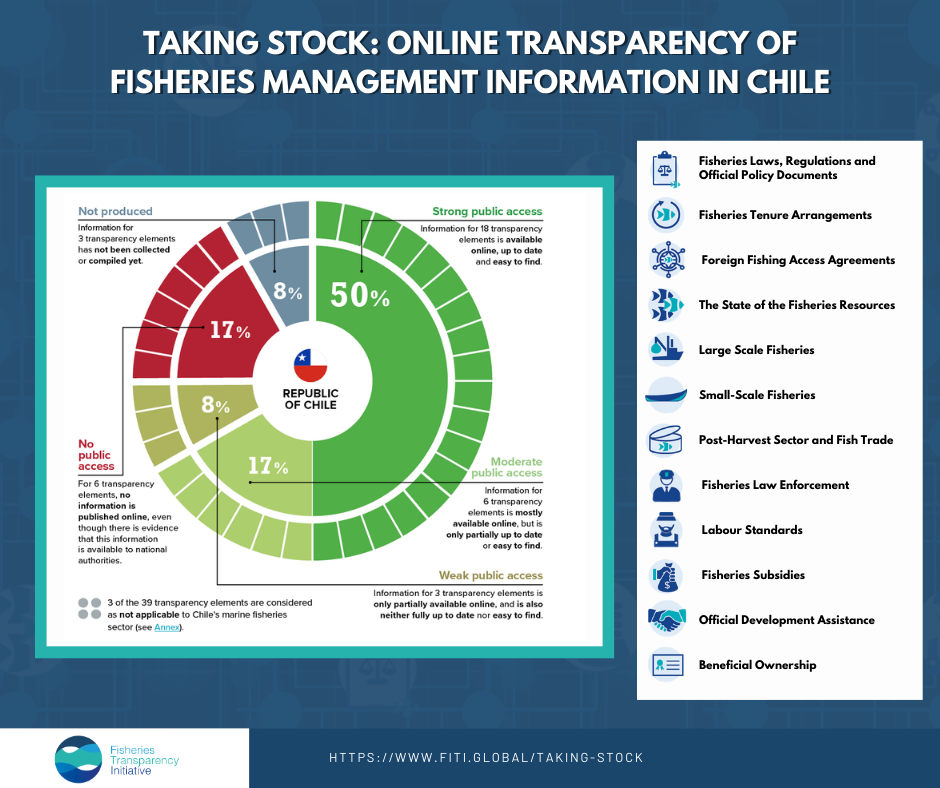
Chile, Latin America’s top seafood exporter, shows strong results when it comes to publishing information about how it manages its marine fisheries. A new TAKING STOCK assessment from the Fisheries Transparency Initiative (FiTI) notes that most key data is already online, reflecting a growing commitment to transparency in the sector. The progress not only reflects a strong public sector effort but also sets a solid benchmark for sustainable fisheries management across the region.
The FiTI TAKING STOCK assessment compared Chile’s online disclosures against global standards, showing that the country is starting from a strong position of transparency. Crucially, the assessment looks not only at what is published but also evaluates how accessible and usable the information is. Public access to timely, complete and understandable data helps citizens and stakeholders actively engage in marine policy discussions, enforcement monitoring, and conservation efforts. Key results from this assessment include:
- 27 out of 36 applicable transparency elements are already publicly available online;
- 89% of this information is up to date, which helps ensure accuracy and supports better decision-making;
- 74% of the available data is easy to find, making it accessible even to non-specialist users.
For example, SUBPESCA publishes regular fish stock status reports, giving the public a clear picture of marine resource health. SERNAPESCA’s annual enforcement summaries show how laws are being applied across the sector. The government also shares updated data on catch volumes, maintains a public registry of artisanal fishers, and provides technical documents on fishing activity. Together, these sources support informed decisions and help build trust in how fisheries are being managed.
The assessment also points to areas where Chile can go further. Some types of routinely collected data, such as information on financial payments within the sector or fish discards at sea, have not yet been made public. Transparency around beneficial ownership or understanding who ultimately profits from fishing licenses or companies, remains a common challenge around the world, and Chile is no exception. Improving the accessibility and navigability of certain datasets, including those on fisheries subsidies and management plans, will also help ensure the information reaches and serves the public effectively.
These ongoing efforts to disclose fisheries management information go hand-in-hand with Chile’s recent commitment to strengthen transparency through the implementation of the FiTI Standard. Rather than a starting point, this commitment builds on existing progress and signals the country’s intention to deepen its alignment with international best practices in marine governance. It reflects a clear recognition that open access to information supports more inclusive decision-making, stronger accountability and long-term sustainability in the fisheries sector.
Chile’s experience offers valuable lessons for other countries facing the complexities of ocean governance. With clear results, a formal commitment and the willingness to continue improving, Chile shows how openness can drive sustainability. As pressures on marine resources grow, the importance of public information and trust will only increase. Chile’s efforts show what that progress can look like.
The assessment reports, funded by the Gordon and Betty Moore Foundation, are available for download as a Summary Assessment Report as well as a complementary, in-depth Detailed Assessment Report here:
